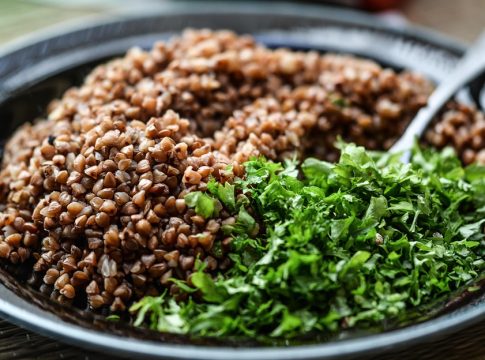In recent years, plant-based diets have surged in popularity, and for good reason. They offer numerous health benefits, promote sustainability, and can be kinder to your wallet. However, despite their growing acceptance, several myths still cloud the perception of plant-based diets. Debunking these misconceptions is essential to understanding what plant-based eating truly entails and how it can work for everyone. Whether you’re considering making the switch or just curious, knowing the realities can guide you in your journey toward a healthier lifestyle.
1. Plant-Based Diets Are Expensive
One of the biggest myths about plant-based diets is that they are costly and can’t be budget-friendly. While it’s true that gourmet and specialty plant-based products can add up, staples like beans, lentils, rice, potatoes, and seasonal vegetables are incredibly affordable. In fact, adopting a plant-based diet can lead to savings on your grocery bill, especially if you focus on whole foods rather than processed alternatives. By shopping at local markets or choosing bulk options, you can easily eat healthily without breaking the bank.
2. You Can’t Get Enough Protein
A common concern is that plant-based diets lack adequate protein sources. However, many plants are rich in protein, including legumes, quinoa, nuts, seeds, and even certain vegetables like spinach and broccoli. The key is to consume a variety of these foods to ensure you’re getting all essential amino acids. Moreover, numerous studies have shown that a well-balanced plant-based diet provides sufficient protein for most people—just ask any athlete who thrives on plant-based nutrition!
3. Plant-Based Diets Are Boring and Flavorless
Many think that a plant-based diet consists solely of bland salads and tofu. Let’s set the record straight—plant-based cooking can be vibrant and flavorful with an endless array of spices, herbs, and cooking techniques! From slow-cooked curries to grilled vegetable skewers, the culinary possibilities are expansive. Exploring different cuisines can introduce you to delicious plant-based dishes that are both satisfying and exciting. So, toss that stereotype out the window!
4. It’s Hard to Find Plant-Based Options
With the growing awareness of plant-based diets, restaurants and grocery stores are expanding their selections. Many places now offer dedicated vegan menus, plant-based proteins, and alternatives for traditional favorites. Moreover, local grocery stores commonly carry a variety of plant-based brands that cater to consumers’ needs. Whether you’re dining out or cooking at home, finding plant-based options has never been easier!
5. You Have to Give Up All Your Favorite Foods
Another prevalent myth is that switching to a plant-based diet means you have to sacrifice all your favorite dishes. In reality, a plant-based diet allows for creativity in the kitchen! You can adapt traditional recipes by replacing animal ingredients with plant-based substitutes. Craving a creamy pasta dish? Use cashew cream or nutritional yeast to replicate that richness. Want a burger? Opt for a lentil or black bean patty. The point is not about deprivation, but rather reimagining how you can enjoy your beloved meals in a plant-forward way.
6. Plant-Based Diets Are Not Nutritious
Skeptics often argue that plant-based diets are lacking in essential nutrients. However, a properly planned plant-based diet can provide all the necessary nutrients your body requires. In fact, many plant foods are rich in fiber, vitamins, and antioxidants. It’s crucial to include a variety of foods to cover all bases. If you’re worried about specific nutrients like Vitamin B12 or Omega-3 fatty acids, supplementation might be beneficial, but most of your nutrition can be obtained through well-rounded plant choices.
7. Switching to a Plant-Based Diet Is Complicated
Finally, some people believe that transitioning to a plant-based diet is a daunting task. While it may seem overwhelming at first, starting with small changes can make it manageable. Consider “Meatless Mondays” or simply add more plant-based meals to your weekly routine. Gradually increase your intake of fruits, vegetables, and whole grains, and experiment with new recipes. The transition can be a fun journey rather than a chore, and there’s a supportive community out there to help you along the way!
Embracing the Plant-Based Mindset
Now that we’ve debunked these common myths about plant-based diets, it’s clear that they can be affordable, nutritious, and delicious. Whether you’re making a complete transition or just incorporating more plant-based meals into your life, understanding these misconceptions will set you up for success. A plant-based diet holds the potential for a healthier lifestyle while being kinder to the planet.
So, what are your thoughts on plant-based diets? Have you experienced any of these myths in your journey? Share your thoughts and experiences in the comments below!

Covers viral stories, pop culture, and breaking celebrity news.
Bio: Jamie has a sharp eye for what’s buzzing online, tracking social media trends and entertainment headlines around the clock.

